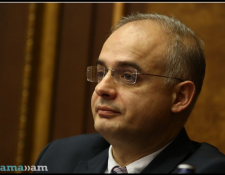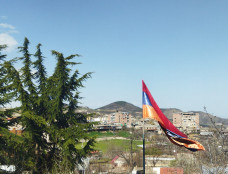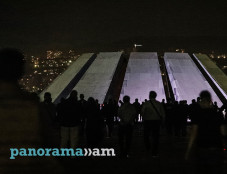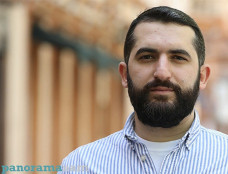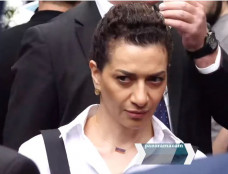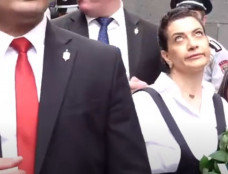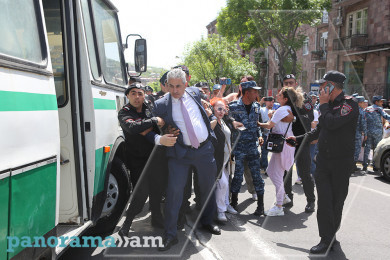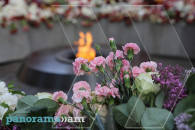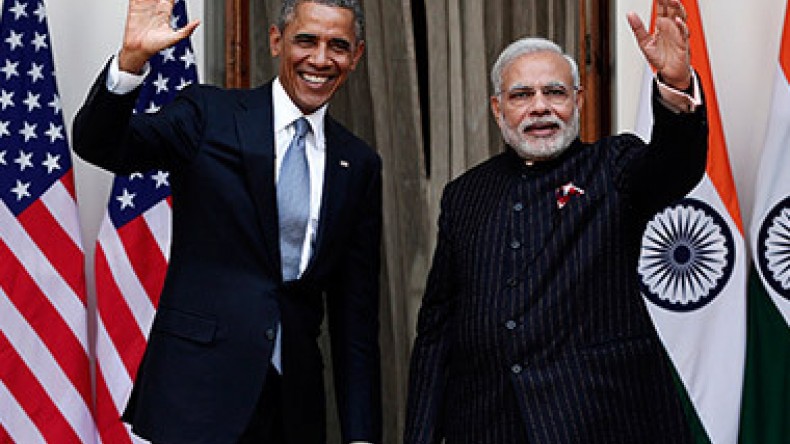
China vigilant as India transforms its diplomatic posture towards the US
By Jhinuk Chowdhury, RT
The meeting between US President Obama and Indian Prime Minister Modi is a clear statement that India is finally shedding ambiguity from its foreign policy and making tough choices, a stance that’s putting Beijing on guard.
The 66th Indian Republic Day celebration grabbed impressive number of international headlines, thanks to New Delhi’s ‘special’ guest – US President Barack Obama, the first American president to not only visit India twice during his tenure, but also the first to preside as chief guest at the occasion.
The visit saw it all, from big promises of a five-fold increase in bilateral trade, to the US committing $4 billion in loans, $2 billion for renewable energy, and, also $1 billion for financing American exports to India.
Both sides discussed sticking issues including the US’s reservation on India’s “absence of an effective IP protection,” the obtaining of H-1B visas for Indian professionals working in the US, and easing the business environment in India for American investors.
The Indo-US defense framework agreement was renewed for the next ten years. Four ‘pathfinder projects’ were identified as a scheme for co-developing defense technology under the Defense Technology Transfer Initiative (DTTI) which will include - next generation Raven Minis UAVs, roll-on roll-off kits for C-130s, mobile electric hybrid power sources, and Uniform Integrated Protection Ensemble Increment II.
A major “breakthrough” was achieved in an Indo-US civilian nuclear deal. It’s special for India because the Indian Civil Liability for Nuclear Damages (CLND) Act, 2010 is reportedly kept intact.
For years the US has been raising objections over the Indian civilian nuclear deal’s clauses especially Section 17b, which says plant operators can claim compensation from equipment suppliers in case of an accident because of “equipment or material with patent or latent defects,” and Section 46 that makes both suppliers and operators liable to be sued by accident victims.
Indian mediareportsthat the proposal of an insurance pool of $244 million, half of which is to be contributed by Indian insurance companies and the other half by the government, did the trick to break the almost seven-year logjam around the nuclear deal.
Additionally, India is also said to have stuck to its position to allow only the International Atomic Energy Agency (IAEA) track its nuclear materials vis-à-vis US’ long time demand to track the same.
However, the most important statement from strategic point of view was that on the 'US-India Joint Strategic Vision for the Asia-Pacific and Indian Ocean Region' which tacitly is sending a message to Beijing that India is now making some hard choices in the region.
The statement says that "a closer partnership between the United States and India is indispensable to promoting peace, prosperity and stability" in the wider region.
It adds, "We affirm the importance of safeguarding maritime security and ensuring freedom of navigation and over flight throughout the region, especially in the South China Sea. We call on all parties to avoid the threat or use of force and pursue resolution of territorial and maritime disputes through all peaceful means, in accordance with universally recognized principles of international law, including the United Nations Convention on the Law of the Sea."
Role for New Delhi in Washington’s Asia rebalance
India’s security concern - sharing a troubled boundary with China with reports of border flare ups as recently as mid December 2014 - is evident from some of the first steps that the Modi government took last year soon after it came to power – shooting up foreign investment in the defense sector to 49 per cent and upping its defense outlay to $38.35 billion. However, this is nowhere close to the mammoth military budget of Beijing which has been $132 billion for 2014 and is expected to increase further this year.
On the other hand, Beijing’s overture to expand its influence in India’s neighborhood especially that with rival Pakistan is adding to New Delhi’s unease. By some estimates, more than 50 per cent of Pakistan’s weapons imports come from China. The two even signed anuclear dealrecently.
Meanwhile, coinciding President Obama’s India visit, Beijing too had a special guest - Army chief General Raheel Sharif of Pakistan, the nation that Beijing calls an ‘irreplaceable’ all-weather friend.
India’s concern is the growing ‘China-Pakistan axis’ and a looming risk of New Delhi encountering a two-front offensive. Additionally India also fears being encircled in the Indian Ocean region with China’s growing influence over countries like Sri Lanka and the Maldives.
This is where the US sees a convergence of interest with India. There seems to be a growing conviction in the American diplomatic circle of the greater effectiveness of putting up a united front to contain China and preserve the postwar order in the region than having the US “go it alone” in the region.
In fact during Modi’s visit to the US last year, both countries issued a joint statement, for the first time, specifically mentioning the situation in the South China Sea and expressing concern over the “rising tensions over maritime territorial disputes” in the region.
With a similar statement this time, many feel this has become an important part of the joint strategic vision for the Asia-Pacific prompting some to think New Delhi could be gradually partnering with Washington in its "Asia rebalance " strategy.
Meanwhile, India continues to propagate freedom in the disputed South China Sea. A language very conspicuous during Indian President Pranab Mukherjee’s visit to Vietnam last year, where he issued a joint statement favoring freedom of navigation in the East Sea/South China Sea and calling all parties concerned to exercise restraint, avoid threat or use of force.
Interestingly, India’s ‘Act East Policy’ has also found a mention in the joint statement along with US’ rebalance to Asia as a platform that provide opportunities for India, the United States, and other Asia-Pacific countries to work closely to strengthen regional ties.
This many feel could be indicative of a growing US-India-Japan trilateral partnership. While the US is already an ally of Tokyo, India and Japan too have been expanding security ties under Modi.
Sharp reactions from China
Beijing is clearly alarmed with this extended Indo-US bonhomie evident from Beijing’s Republic Day message to India which while offering to take the bilateral strategic partnership to a “higher level,” also cautioned New Delhi to avoid a “zero-sum trap” that was being set up by Washington and its allies.
China said that Washington through its ‘pivot to Asia’ policy was trying to pit New Delhi against Beijing.
Quite tellingly, just as President Obama and Modi released a joint statement mentioning India’s phased entry into the Nuclear Suppliers Group (NSG), the Missile Technology Control Regime (MTCR), the Wassenaar Arrangement and the Australia Group;Beijing too announced its conditional support for India's NSG membership saying India should take required steps to satisfy standards of the NSG.
Taking note of the Indo-US statement on the South China Sea, a Chinese official is said to have criticized the joint announcement saying the need is to “maintain a fine situation in the South China Sea and not to stir up trouble.”
Many feel India is shedding the ambiguity that has characterized its foreign diplomacy for long – a posture New Delhi’s neighborhood needs to come to terms with. Take the case of Israel: New Delhi is coming out in the open proposing closer ties with Tel Aviv. The same goes for the US as for a long time New Delhi has shied away from owning a relationship with Washington under the pretext of non-alignment.
Even in the case of China that has been sent a clear message during the visit of President Xi Jinping that while India is open to expand its relationship with Beijing, it will not compromise on security issues.
Strategically India wants to regain its lost importance in the region especially in Southeast Asia and the Indian Ocean region. It has made a clear choice who it wants to partner with for this.
However Indian diplomatic circles are concerned over the ‘packaging’ of the joint statement on Asia Pacific and the Indian Ocean region. There is a risk that smaller nations in India’s neighborhood including ASEAN may view New Delhi leaning overly towards the Americans who are perceived by many as ‘big brother’, and in this case could act as a ‘quasi’ big brother. Deft diplomacy is needed to send the right message across the region and beyond.
Newsfeed
Videos





